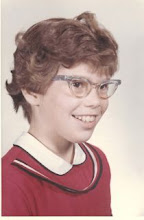
After spending a few days, unplugged, I'm back. Only to discover that some cyber-imp removed/deleted/absconded with ALL of the blogs I get updates on!
The words I thought upon discovering this sad state of affairs are not printable.
Which got me to wondering -- how do you handle using "naughty" words in your writing?
When we were growing up, my mother did not allow us to say "shut up." So she taught us a wonderful substitute: "tick-a-lock"-- which I used in an early chapter book, Second Grade Pig Pals.
In Hattie Big Sky, I had a scene in which the fat man on the train -- furious (and rightly so) at James Hill and his railroading cronies for snookering so many of the homesteaders -- say, "Goddam James Hill." My editor asked if I had to use that word. And I realized I didn't -- I got a much bigger punch by showing Hattie's shock at the language the man used. (This was a trick I borrowed from Stephanie Tolan's Newbery Honor book, Surviving the Applewhites.)
Of course, there are times when profanity is called for on the page. But because I am my mother's daughter and a bit squeamish about four-letter words, I really appreciate it when writers find unique ways to curse and cuss. One of the things I admire about M.T. Anderson's brilliant book, Feed, is that he creates swear words that fit that near future time period. Not exactly profanity, but Karen Cushman does a clever thing in The Ballad of Lucy Whipple: she has Lucy's little brother collect as many phrases as he can for drunkenness (a condition they are very familiar with, given that they live in a rough and tumble mining camp). This quirk of his helps add period details and humor -- and Karen breaks our hearts with this "gimmick" after the boy dies. (Read the book to see what I mean).
If I promise not to wash your mouth out with soap, can you share how you handle this kind of language in your writing?


No comments:
Post a Comment